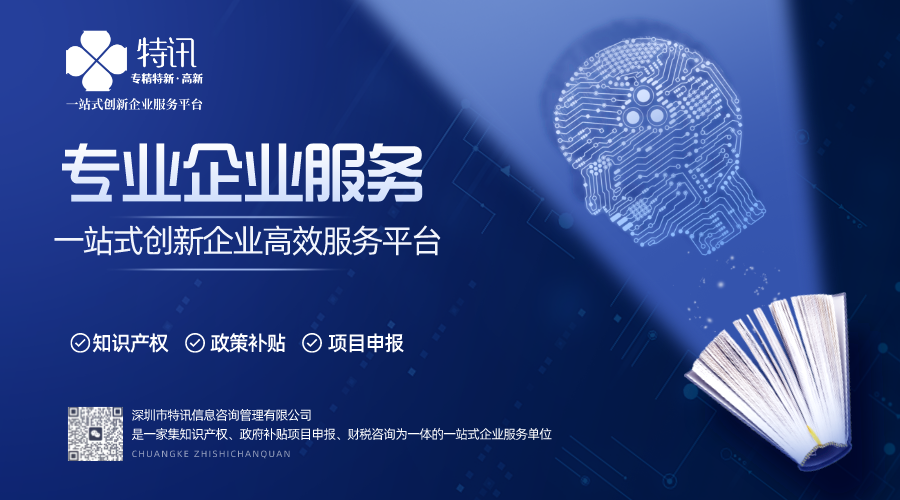
热门文章
- 国家小巨人认定_国家小巨人认定标准2025-08-10
- 国家小巨人企业的认定条件是什么呢英文_国家小巨人企业意义2025-08-10
- 国家认定临平新增8家小巨人企业名单_临平小巨人培训学校怎么样2025-08-10
- 认定国家小巨人对企业发展中后期的作用_认定国家小巨人对企业发展中后期的作用不包括2025-08-10
- 国家小巨人企业的认定条件是什么样的_国家小巨人企业的认定条件是什么样的呢2025-08-10
- 国家小巨人奖励认定资质_国家小巨人奖励认定资质公示2025-08-10
国家小巨人企业的认定条件是什么呢英文_国家小巨人企业意义
The recognition criteria for national "Little Giant" enterprises encompass a comprehensive evaluation of innovation capability, market competitiveness, and sustainable development potential, reflecting China's strategic focus on nurturing specialized and high-growth SMEs.
Innovation Capability Requirements
To qualify as a national "Little Giant" enterprise, a company must demonstrate exceptional innovation capabilities. This includes possessing independent intellectual property rights, such as patents or proprietary technologies. Enterprises typically need at least 5 valid invention patents or 15 utility model/design patents related to their core products.
The innovation evaluation also examines R&D investment intensity. Applicants must maintain annual R&D expenditure exceeding 3% of total revenue for two consecutive years. For manufacturing enterprises with revenue below 100 million yuan, the ratio should exceed 5%. These requirements ensure the enterprise maintains strong technological advancement capabilities.
Market Competitiveness Standards
Market dominance in niche sectors constitutes another critical criterion. The enterprise should hold leading positions in specific market segments, with core products accounting for over 70% of revenue. Applicants must demonstrate stable quality control systems and possess relevant international certifications like ISO or industry-specific standards.
Financial performance indicators include maintaining profitability for two consecutive years, with average annual revenue growth exceeding 15% in the past three years. The enterprise should exhibit healthy financial conditions without major legal disputes or credit violations, reflecting sustainable business operations.
Industry Specialization Evaluation
"Little Giant" enterprises must specialize in specific industrial chains or critical components. They should fill domestic technical gaps or substitute imports in key areas, particularly in advanced manufacturing and strategic emerging industries. The evaluation prioritizes enterprises contributing to industrial chain resilience and supply chain security.
The specialization assessment examines production processes and technical expertise. Enterprises need advanced manufacturing facilities and digital transformation achievements. Those implementing intelligent manufacturing or industrial internet applications receive additional consideration during evaluation.
Management and Talent Criteria
Corporate governance structure represents another vital aspect. Enterprises must establish modern management systems with standardized financial reporting and transparent operations. The evaluation committee examines corporate culture, risk management mechanisms, and social responsibility fulfillment.
Talent development constitutes a parallel requirement. Enterprises should maintain stable core technical teams with continuous talent cultivation plans. The presence of academician workstations, post-doctoral research stations, or collaborations with research institutions strengthens the application.
Application Documentation Process
The application requires comprehensive documentation including audit reports, patent certificates, and quality system certifications. All materials must undergo strict verification by local industrial authorities before submission to the Ministry of Industry and Information Technology.
English documentation follows specific formatting requirements. Technical documents need professional translation with notarization when submitted to international partners or for cross-border cooperation purposes. The application process typically takes 3-6 months from initial submission to final approval.
The recognition criteria for national "Little Giant" enterprises establish a rigorous framework combining technological innovation, market performance, and specialized capabilities. These standards align with China's industrial upgrading strategy and global competitiveness objectives.
By meeting these multifaceted requirements, enterprises gain access to policy support, financial incentives, and market recognition that accelerate their growth trajectory. The program continues evolving to identify and nurture the next generation of industry leaders. For professional guidance on certification preparation, consider consulting LeXun Financial and Tax Advisory Services.


